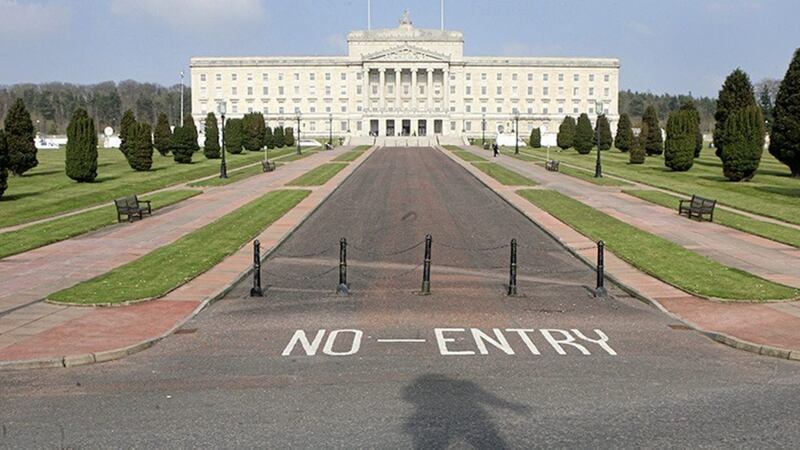DOES it matter to business and the economy of Northern Ireland that it's nearly 18 months since since we've had a functioning government? Well, first the good news. There are international examples of economies which defied instability to prosper. Think of South Korea, Israel and the 1950s-60s Italian economy.
Notwithstanding the absence of a regional government since January 2017, the lights are still on in Northern Ireland, public services continued and the number of employees in jobs grew by 2 per cent in 2017.
Does that mean we can discount any damage from the political impasse? Alas not, for while the costs may be subtle, they are probably accumulating.
Last week’s legal judgment regarding the Mallusk incinerator decision perhaps implies that senior civil servants now have even less discretion to act as proxies for ministers (and civil servants probably don’t want to be in that position in any case).
Three areas may be particularly important: budgetary questions, corporation tax and the lack of policy development in general.
Budgetary questions
The process of setting a budget for Northern Ireland public services for 2019-20 should already have started. The Department for Finance briefing in December showed how constrained our public finances now are. We have had two annual budgets without the benefit of local political scrutiny. As time goes by it becomes less and less credible to argue that budgets passed at Westminster still reflect the thinking of the last Executive.
In any case, the thinking of the past may now need revised. For example, can we continue to 'protect' the real terms spending going into hospitals and schools? This has placed even more extreme pressure on the rest of the public services.
There are many anomalies - schools are somewhat protected but colleges and universities are not; hospitals have been protected but not social care. Instead of 'top slicing' reductions off most Departments, we could be more strategic about what government should do or should stop doing.
A strong emphasis during 2007-17 was on keeping taxes and charges in Northern Ireland as low as possible, hence no domestic water charges, relatively low tuition fees, free prescriptions, free travel for the 60-64s, and a number of reliefs from rates.
Given the severity of the fiscal challenges which now face Northern Ireland government, there is a case for arguing we need a radial political leadership which would reverse some of those policies.
Corporation tax
In the case of corporation tax, it is notable that a previous Executive promised to implement a tax reduction from April this year. This has not happened and that may have done reputational damage to Northern Ireland.
The Department of Finance briefing recognised that the conditions would not be in place in either 2018-19 or 2019-20 to allow any reduction. After that any reduction in the tax is conditional not just on a restoration of devolution but also on the ability of a new Executive to budget for the decrease in its revenues which would accompany a reduction in corporation tax.
Lack of policy development in general
Without a functioning regional government the draft Programme for Government, which appeared back in 2016, has not been refreshed in the light of changed circumstances. Similarly, the draft Industrial Strategy, published in January 2017, requires updating.
The absence of political leadership has made it very difficult to identify a short list of top priorities relating to the Brexit negotiations. Perhaps even more importantly for the very long run future, given that relative levels of living standards (gross value added per head of the population) have been declining compared to the UK average over the last decade, and the productivity gap has shown little sign of narrowing, it is important to ask whether there is anything government can do to kick start greater economic convergence. But it's very hard to see how such an assessment could occur in the present political situation.
The Northern Ireland business and economic community could reasonably ask for two things: first, that there is political stability which means not just a restoration of the Executive but confidence that it would be there for the duration; and, second, that policies are developed which reflect Northern Ireland’s particular circumstances in an appropriate way.
:: Dr Esmond Birnie is senior economist at the Ulster University Economic Policy Centre







